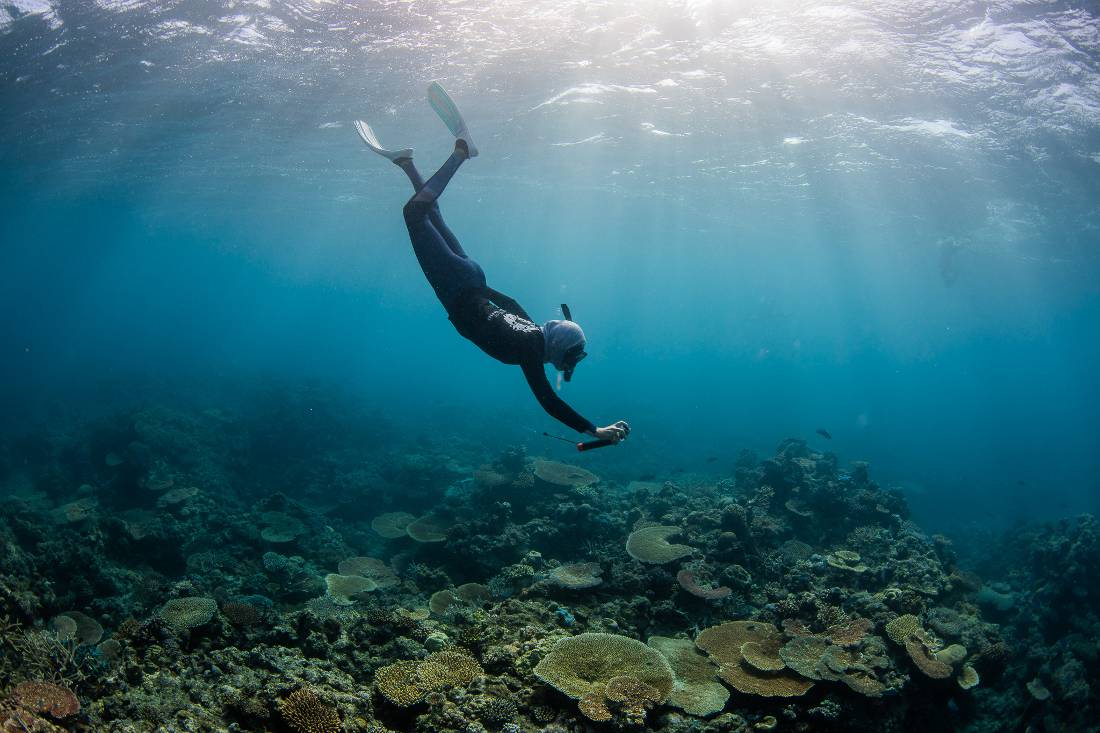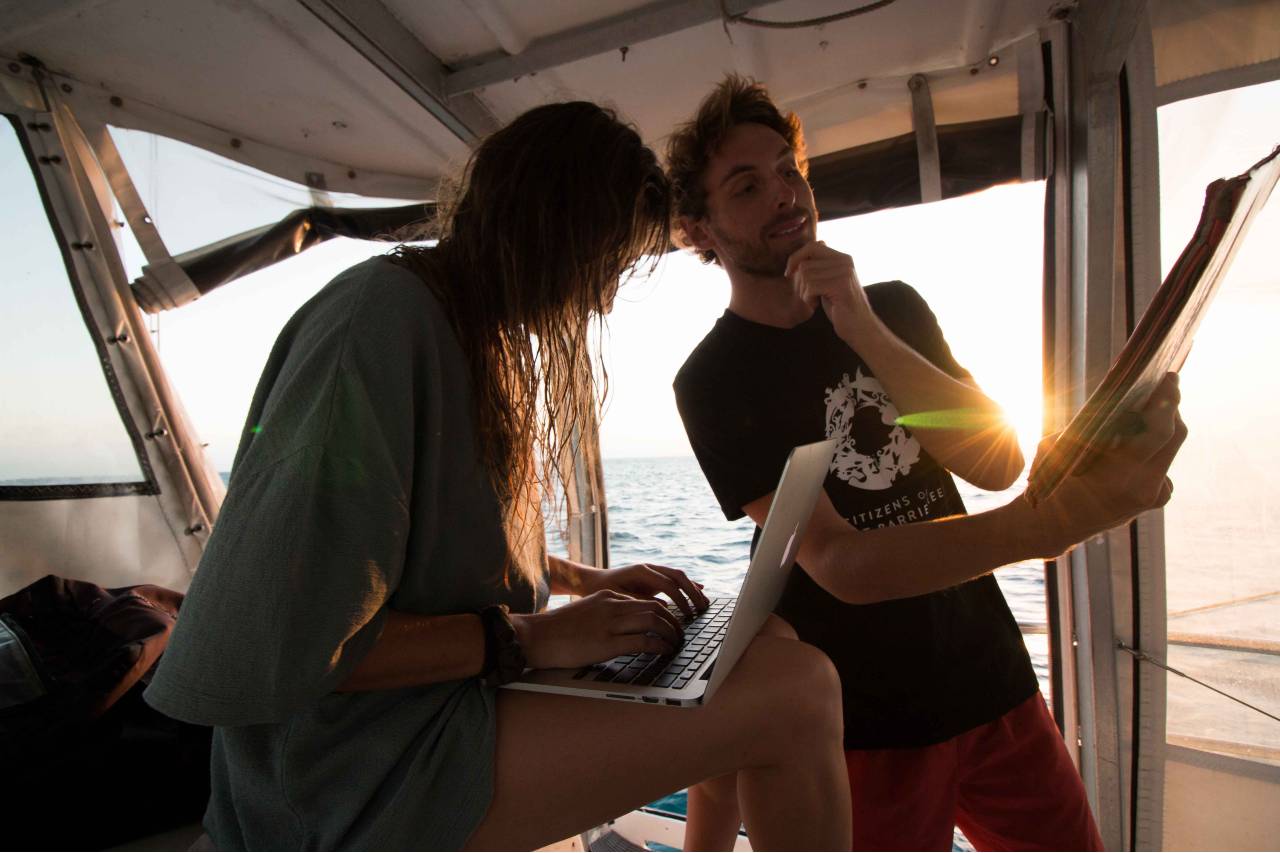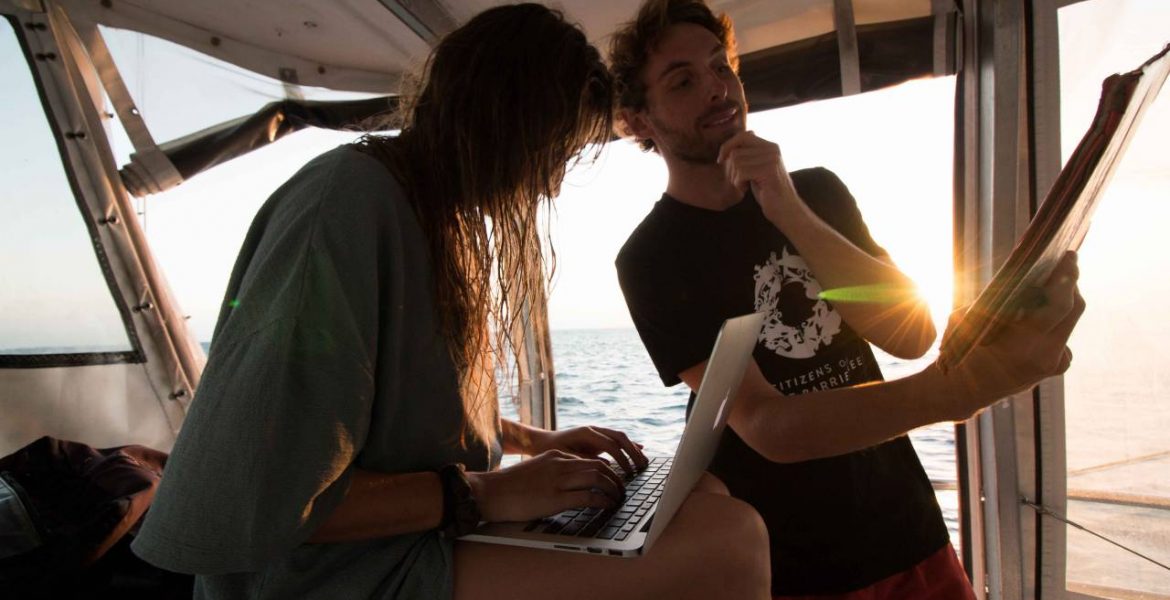The Great Barrier Reef ecosystem faces a significant threat. As the impacts of climate change continue to accelerate, there is an urgent need to understand how the crisis is affecting the reef ecosystem.
However reef surveys cover just 5% of the total reef area. Therefore scientists lack the necessary resources to properly understand how the reef is changing year-on-year.
However, there is a glimmer of hope.
Your eyes can help protect our reef
The annual Great Reef Census is a groundbreaking citizen science effort to survey the Great Barrier Reef. Whether you’re on the Reef or on the other side of the world, you can be a part of this important conservation initiative.

How does it work? The project has assembled a makeshift research flotilla of dive boats, tourism vessels, superyachts, fishing charters, and tug boats to capture tens of thousands of survey images from across the reef. These images are then analysed online by thousands of everyday people (just like you!) from across the world, making it one of the world’s largest marine citizen science initiatives to date.
The Great Reef Census is a fully scalable model, with the power to transform conservation efforts globally. Through this initiative, scientists can work towards scaling up conservation efforts not just for the Great Barrier Reef, but for reefs around the world.
How our reef is changing

Rising temperatures, ocean acidification, and increased frequency and severity of extreme weather events such as cyclones and coral bleaching are some of the ways that climate change is affecting the reef ecosystem.
Warmer waters stress the coral, causing it to expel the algae living within it, which results in coral bleaching. Since the 1980s, the Great Barrier Reef has experienced four major coral bleaching events due to high water temperatures, with the most severe events occurring in 2016 and 2017.
Ocean acidification, caused by the absorption of excess carbon dioxide from the atmosphere, is also affecting the reef. The acidity of the water makes it harder for corals to build their skeletons, and this can lead to slower growth rates and weaker structures.
These changes not only affect the coral and marine life but also the millions of people who depend on the reef for their livelihoods, from tourism to fisheries. Urgent action is needed to address the impacts of climate change and protect the Great Barrier Reef and other vulnerable ecosystems around the world.
How you can help

The Great Reef Census collects tens of thousands of images from hundreds of reefs across the Great Barrier Reef each year. We need as many people from across the world to help us identify what type of coral, and how much of it, they can see on these images.
Ready to join? Watch this tutorial video on the three easy steps of analysing an image, so make sure you watch to get the most out of your Census experience.
About Citizens of The Reef
The Citizens of the Reef mission is to scale up conservation efforts for the Great Barrier Reef, and reefs around the world. No matter where you are around the world, you can help in the conservation and protection of the Reef.
Need more inspiration?
This Weekend is a lifestyle guide for sustainably-minded folk. We create stories for good so you can live a more sustainable life, without compromising the things you love.
Check out more practical guides on sustainable living, slow travel, sustainable dining, conscious brands, wellness essentials, and more.






